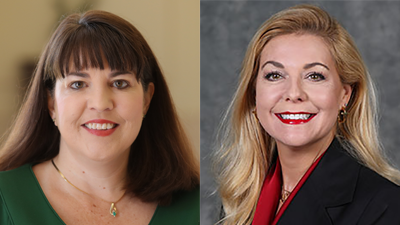Research in Progress: Ethical organizational listening for stakeholder engagement and responsibility
June 22, 2020

By Marlene S. Neill, Baylor University and Shannon A. Bowen, University of South Carolina
In times of a global pandemic, protests focused on issues of racial injustice, and layoffs associated with a recession, there likely has never been a time that demands ethical listening while facing new barriers toward achieving that objective.
Just how do employers listen when some of the workforce is working from home? How do you listen effectively while practicing social distancing? What types of listening are appropriate when trying to understand racial and diversity issues? And how can management best listen effectively and strategically to help the organization address these issues?
All of these issues are arising in our conversations with communication professionals as we begin our Page Center-funded study on ethical organizational listening examining these issues from both an external and internal stakeholder perspective.
In formative research, managers said they often did not define listening as part of strategy. CCOs indicated that often their management teams do not realize that strategic listening can inform strategic management, and executives must be educated about our capabilities in this area.
Others indicated that management “pigeon-holed” listening as part of a CSR activity that needs to take place when an organization is challenged by adversarial publics. We will explore these common areas of oversight or under use as a way to increase an organization’s listening capability in our study.
In our initial interviews, communication professionals have shared specific accounts of times their organizations have engaged in ethical listening and described how they then applied those insights into organizational decision making. They also are providing examples of times when their organizations did not engage in ethical listening and the consequences of that decision. For example, an internal communication executive said when her employer did nothing in response to results of an employee survey, it had consequences years later:
We will explore how communication professionals define ethical listening, examples of the ways that companies and organizations are engaging in ethical listening, what types of tools, systems or techniques they are using for listening; barriers to effective listening, specific examples of times when they engaged in ethical listening, and how they formally evaluate their listening efforts.
Our study will involve 30 in-depth interviews with communication professionals specializing in both internal and external communication followed by an online survey with approximately 250 professionals. Through this study, we will contextualize listening as a part of strategic management and communication, in both theory and practice. Further, ethical listening can strengthen understanding, relationships, and trust, according to Bowen, Hung-Baesecke and Chen (2016).
We also hope to provide examples of best practices in ethical listening and identify effective technology tools used to listen to both internal and external stakeholders.
For further information or to participate in this study, please email Marlene Neill at Marlene_Neill@baylor or Shannon A. Bowen at sbowen@sc.edu. Results from the study will be available in 2021. This project is supported by a Page/Johnson Legacy Scholar Grant from the Arthur W. Page Center at Penn State University. Neill is a research fellow of the Page Center.

